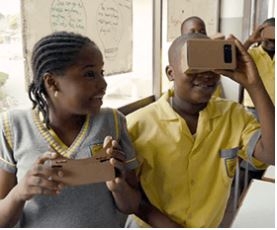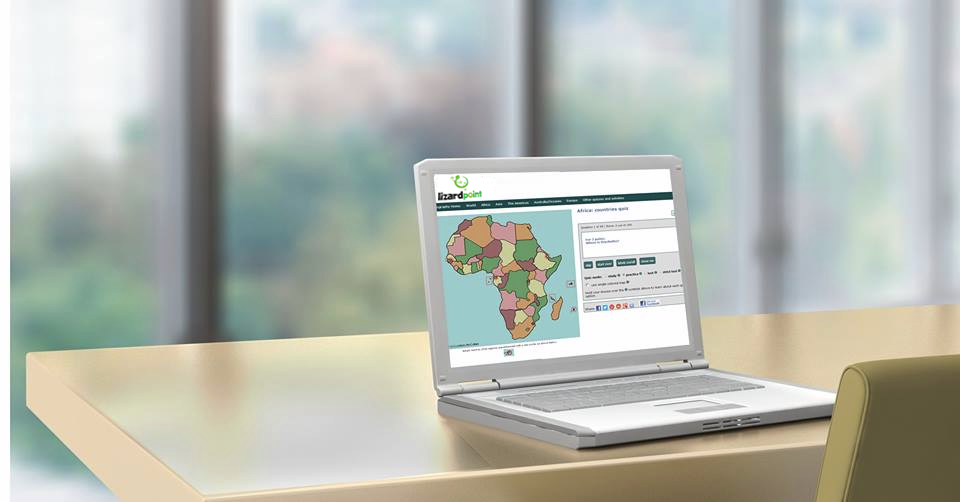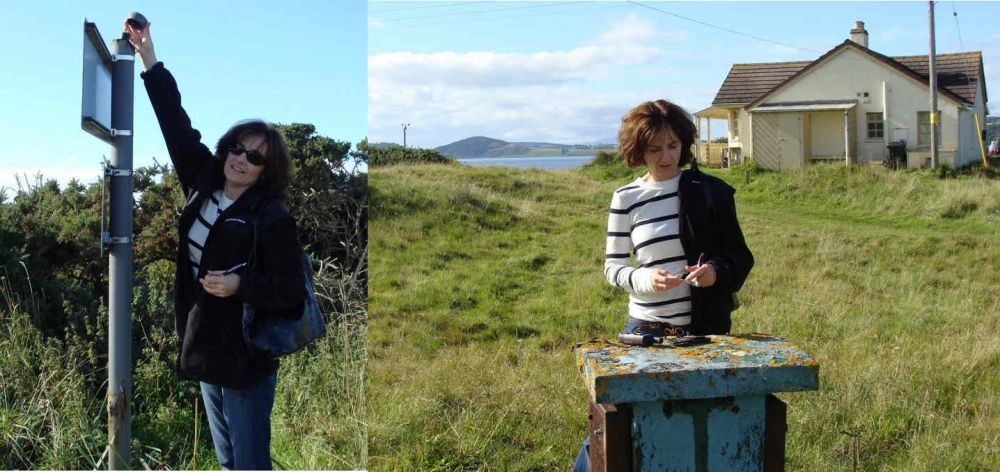Jan 192016The folks at Google are piloting an interesting immersive geography program that might interest some of our readers.
The gist of the program is a to take students on a kind of virtual expedition where they can experience more than 100 interesting journeys. These simulated journeys could include a visit to the South Pole, coral reefs or ancient American ruins. With the Expedition Kit, students will be able to look up and down, and spin to get a 360-degree view of a location, as if they were visiting in person.
Expeditions teams will visit selected schools around the world, including the United States, Australia, New Zealand, the United Kingdom, Brazil, Canada, Singapore and Denmark. Each team will bring a complete Expeditions kit with everything the teachers need to take their students on journeys anywhere. The team will show teachers how Expeditions works and help set it up before class.
There is no charge or cost involved in the program. You just need 6 interested teachers.
Visit Googles page to sign up to let them know you’d like the Expeditions Pioneer Program to stop at your school. Or read about another school's experience with the program.
Oct 212015The use of technology by teachers is an subject of great interest to the Lizard Point team. Obviously, we would like to make Lizard Point Quizzes even better; easier to use for teachers and students, more engaging and able to impart real learning about our world. But beyond that, we strongly believe that our kids are going to be increasingly living in a 'digital world', and their experience in the classroom should reflect and prepare them for that reality.

In researching this post, we came across several articles about the use of technology in the classroom that were rather disappointing. Several of them were summarized in Why Ed Tech Is Not Transforming How Teachers Teach by Benjamin Herold in Education Week in June, 2015. We took away a couple of key points from this article:
- By and large, we have gotten past 'first order' challenges with adaption of educational technology such as lack of internet connectivity and access to technology. As evidence, the report mentions 75% of high school students reporting regular use of smartphones or tablets in the classroom.
- However, 'second order' challenges are significantly hindering progress. These are reportedly mostly concerned with teacher attitudes, training, administrative support and knowledge.
"The introduction of computers into schools was supposed to improve academic achievement and alter how teachers taught..", according to Stanford University education professor Larry Cuban, ".. neither has occurred". The article goes on to describe technology adaption in the classroom as incremental and more likely to be related to helping teachers teach (ie. powerpoint vs. overheads) than in how students learn. Some good counter-examples are also cited, involving early adapters that have managed to create student-driven, collaborative learning opportunities. But these are definitely presented as the exceptions.
Based on the feedback we receive at Lizard Point, we are convinced that many, many teachers have found ways to use educational software to help students learn (and hopefully not create more work for themselves). We would love to hear from any teachers about their approaches to technology and how they have overcome challenges. Please send us a note or leave a comment. Perhaps we'll find some approaches that we can feature in a later post.
Also, if you have thoughts on ways that software could improve - we'd love to hear that as well. What if we had educational software that engaged kids the way that their video games do? What if they could collaborate and compete with their classmates in a visually stimulating way? What would that look like, feel like?
Oct 112015We discovered geocaching quite few years ago. For us at Lizard Point, it was the perfect combination of geography, nature, technology and general geekiness. It also gave us a fun, cheap, and easy way to engage our kids when they were young. In looking for an item of interest to geography teachers, I went searching for examples of integrating it into lesson plans. Reading the piece, A geocaching treasure hunt helped my students learn about the landscape in the Guardian, by teacher Stephen Lockyer, made me think that this idea has occurred to a few of you.

In case you haven't geocached - it's really simple. Go to the official website and get a free account. In five minutes you can bring up a map of your neighbourhood and find pointers to caches that others have hidden away. I bet you'd find 10 within walking distance. You then note the GPS coordinates and you start your hunt. It's even easier if you just download the free app to your smartphone. After some trekking around and (perhaps) peeking at clues - you'll discover the cache. It will always contain a log and often some little trinkets. The idea is to sign the log, exchange some trinkets if you like, and record the find with the app.
Stephen worked geocaching into an outing that he had already planned and was able to integrate map reading into the lesson. His class was so engaged that they began a program to create and hide geocaches in their own neighbourhood after the field trip.
As the photos illustrate, our family always includes some geocaching when we're on holiday. These were taken on a beach in Scotland. And I can almost guarantee that you'll find some sights off the beaten path and well worth the hunt.




